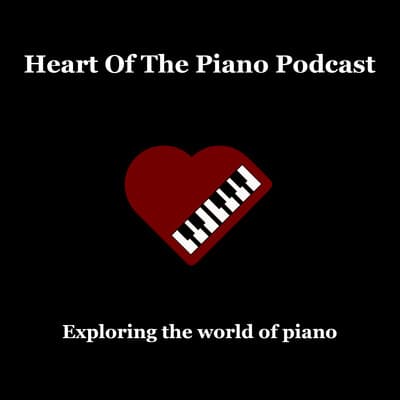Music
The Heart of the Piano Podcast is back with a review of the new piano syllabuses from ABRSM and Trinity, which take you from an Initial Grade to Grade 8. Listen to the podcast to discover some reasons why me and many other piano teachers are now defecting from ABRSM to Trinity! A brief summary of my review: ABRSM- Grade 8 seems much easier technically, but much harder musically than in previous years. Grade 8 book has less pieces than previous years, down to almost half the number of pages. Change of List A/B/C means its possible to avoid core Baroque/Classical pieces. Poor engraving means rhythms are often very difficult to read. Never been a fan of ABRSM's heavy handed editing in higher grades- especially of Baroque music. Not a fan of ABRSM's fingering and ornamentation suggestions. Less scales than before, many books to buy, some of these books now very insubstantial and poor value for money. Many books now less value for money- not just scales but also Grade 8 and the Teaching Notes book which is again down to almost half the amount of pages as previous years. New Initial Grade to match Trinity's. New online-only performance exam- no scales, sight reading or aural tests. Intended to be equal in value to the normal practical exam. Not a fan of this for many reasons, and feel it cheapens the ABRSM 'brand' with a loss of prestige and high standards. The debacle around the poorly implemented new online only Grade 5 Theory exam has sowed the seeds of extreme distrust amongst many music teachers, deepening the impression of a company overly driven by profit & PR rather than delivering core values to teachers and students and listening to their needs. Trinity- Excellent value for money- every grade book has 12 pieces up from the previous 9. The extended edition book includes all the scales for that grade and also provides access to a pdf with an extra 9 pieces from previous years than are included in the new syllabus. Only 2 scale books are needed to cover the whole range as opposed to having to buy one book per grade for ABRSM. Excellent selection of pieces- not only fun, rewarding and engaging, but also very well chosen in terms of developing technical skills at the appropriate levels. I like the idea to include one piece in every grade from a young composers' competition. Students encouraged to play their own (appropriate) composition as a grade piece. Excellently conceived tests of musicality which include the option to improvise. No singing required in aural tests. Every grade has a choice of technical exercises to develop various aspects of technique. An impression of a company that prioritises delivering value for money and cares about the holistic musical development of students rather than just making a good profit. Not entirely convinced that students are made to deliver a balanced programme, and that core skills in Baroque and Classical music are tested- but then this is no longer a part of the new ABRSM structure now! Higher grades are more like Urtext editions- leaving students (and teachers) free to decide how to interpret the composer's markings. Engraving easier to read than ABRSM, but fingerings are too small. Maybe because of using Sibelius default settings and fonts? The recordings made specially for this syllabus are generally more musical than the equivalent recordings made by ABRSM for their syllabus. I like that Trinity have made Spotify playlists as well that feature higher quality performances. Show Notes: An example of some truly atrocious music engraving from ABRSM- this one example comes from bar 2 of the Haydn in the Grade 8 book. Look at how counter-intuitively the right hand rhythm doesn't fit with the left hand rhythm... Apparently, this is the company that ABRSM chose to administer their new online Grade 5 Theory exams: https://www.sitejabber.

